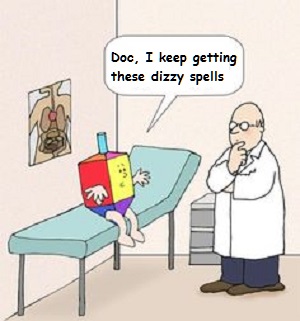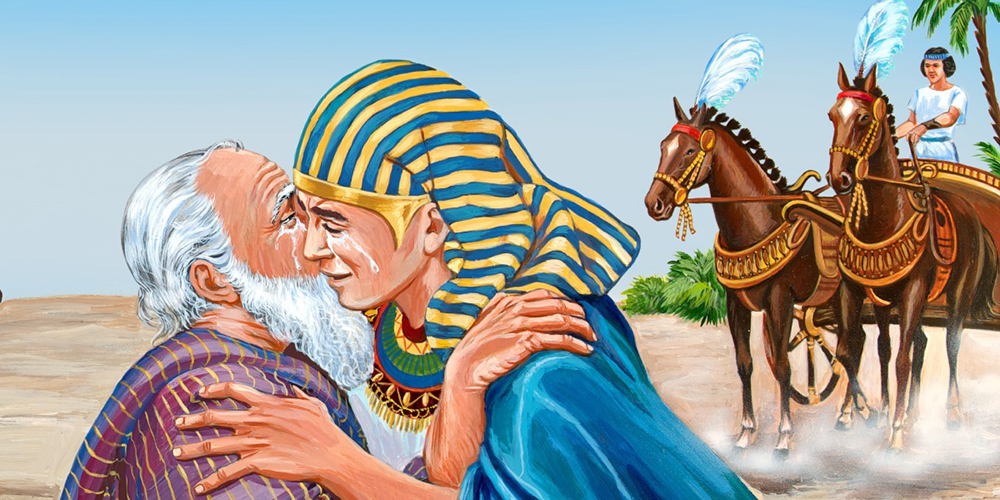Bonjour / Hello [nickname_else_first_name],
Table of contents
1) Perashat Hashavoua - Rabbi Eli Mansour
2) Halakhat Hashavoua (Halakhot related to day to day life) By Hazzan David Azerad - Laws of Hannukah
3) Holy Jokes!
1)PERASHAT HASHAVOUA
This Week's Parasha Insight with Rabbi Eli Mansour
Hanukah- When Building a Foundation
After vanquishing the Greeks from Jerusalem, the Hashmonaim set out to cleanse the Bet Ha’mikdash, which had been defiled by the Greeks, and they dedicated the Bet Ha’mikdash anew. As the Gemara famously relates, all the oil had been defiled, with the exception of one small flask which was found untouched, still bearing the Kohen Gadol’s seal. The Hashmonaim used this oil to kindle the Menorah, and it miraculously sufficed for eight nights, until new oil could be produced and delivered to the Bet Ha’mikdash.
Many commentators raise the question of why the Hashmonaim insisted on using specifically pure oil. The Halachic provision of "Tum’a Hutra Be’sibur" allows performing the service in a state of impurity when the majority of the nation is impure. Seemingly, this should apply to the kindling of the Menorah with impure oil when the Temple was overrun by impurity. Moreover, it is unclear how the oil had become Tameh (impure) as a result of the Greeks’ intrusion into the Temple. A non-Jew touching something does not bring Tum’a (impurity) upon that item. And thus many scholars maintained that the oil in the Bet Ha’mikdash was acceptable for the lighting of the Menorah according to Torah law, despite having been handled by the Greeks, and it was disqualified only Mi’de’rabbanan (by force of Rabbinic enactment). We must therefore ask, couldn’t this Rabbinic edict have been suspended under the extenuating circumstances in which the Hashmonaim found themselves? Why did they insist on using only pure oil, if the impure oil was fit for use on the level of Torah law?
One answer given is that the Greeks had used the oil they found in the Bet Ha’mikdash for idol worship. This indeed disqualified the oil for use even under the circumstances, since the oil had been defiled through its having been used for pagan rituals.
Some commentators, however, explain that the Hashmonaim did not want to rely on any leniencies, or to compromise standards even one iota, because this marked the dedication of the Bet Ha’mikdash. When starting something new, nothing short of the very best is acceptable. Only the strongest foundations can support a large building. The Hashmonaim understood that they were building the foundations of the renewed Bet Ha’mikdash, and so they insisted on maintaining the highest standards of purity and Kedusha, without any compromises or leniencies.
A story is told of the Aderet (Rav Eliyahu David Rabinowitz-Teomim, 1845-1905), a towering Lithuanian sage who was brought to Jerusalem to serve as the city’s Chief Rabbi. Immediately upon arriving in the city, he was invited to officiate at a wedding as his first role in his new position. Already at the beginning of the ceremony, he made a mistake – when reciting the Beracha over the wine, he accidentally recited, "She’ha’kol" instead of "Bori Peri Ha’gefen." He then immediately recited "Bore Peri Ha’gefen," the correct Beracha.
The people were astounded – and very disappointed. There is a well-known Halacha that if one mistakenly recited "She’ha’kol" over a food or beverage which requires a different Beracha, the Beracha is valid after the fact. The people could not believe that the Rabbi chosen as the Chief Rabbi of Jerusalem forgot this simple Halacha, and recited a Beracha unnecessarily.
When he was later asked about the incident, the Aderet explained why he recited a new Beracha. He said that when the Rabbi recites the Beracha under the Hupa at a wedding, he does so on behalf of the groom. He is the groom’s "Shaliah" ("agent"), in a sense, with regard to the Beracha. Hence, he must recite only the Beracha which the groom wants him to recite and thus authorizes him to recite. Unquestionably, a couple at their wedding want to begin their marriage with a strong foundation. They want things done optimally, in the best possible manner, and not on the level of "Be’di’abad" – in a way which is acceptable only after the fact. Therefore, even though generally one who mistakenly recites "She’ha’kol" has fulfilled his obligation and does not recite a new Beracha, in this particular instance, the Rabbi needed to recite a new Beracha – because the Hatan expected him to recite the optimal Beracha, and not a Beracha which is valid only after the fact.
This might also explain why we light not just a single candle each night of Hanukah, which suffices to fulfill the basic obligation, but an additional candle each night, following the "Mehadrin Min Ha’mehadrin" – the highest standard, as the Gemara teaches. As we celebrate the rededication of the Bet Ha’mikdash, the building of the foundation for the renewed Mikdash, we follow the Hashmonaim’s example and strive for the highest standard of performance, seeking to fulfill the Misvot in the best way possible, without any shortcuts or compromises.
2) HALAKHAT HASHAVOUA
Halachot this week are selected and Translated by Hazzan David Azerad
The Laws of Hanukkah, according to the rulings of Maran Rabbi Obadiah Yosef ZT”L
What do you light first - a Hanukkah candle or a Shabbat candle?
On Shabbat evening, one must light the Hanukkah candles first, then the Shabbat candles. If it is too close to Shabbat and there is not enough time to light all the Chanukah candles ,then light one candle of the Chanukia ,allow the members of the household to light the Shabbat Candles while the person lighting the chanukia may continue to light the remaining candles.
If the Shabbat candles were lit before the Chanukah candles then another member of the Family who did not bring the Shabbat yet may light the Cahnukia for the members of the family .
When do you light Hanukkah candles on Shabbat evening?
On Shabbat evening, one should put a large amount of oil, so that it will be enough to light at least half an hour after the stars come out, and also if one lights with wax candles, one should use large candles that will be enough to light for that time.
On the eve of Shabbat, enough oil should be put in the Chanukia so that it would stay lit half an hour after the stars come out Friday night.The Chanukkah candles should be lit about a quarter of an hour before sunset and stay lit fifteen minutes during twilight and continue to stay lit half an hour after the stars come , making it a total of one hour.
If the Chanukia is built in such a way where it can not contain enough oil or the wax candle is too small, and it will not be enough to stay lit for approximately half an hour after the stars come out, the mitzvah of lighting the Chanukia was simply not fulfilled and the blessing would be in vain,you should have at least one of the candles that has enough oil or a candle that is large enough to stay for an hour. If even one candle you can not find that will last 1 hour then you light without reciting the Berachot
Havdalah and lighting the Chanukiah
On Motzaie Shabbat of Hanukkah, at home – we first do Havadalah then light the Chanukia but in the synagogue – Chanukiah is lit first, and then the Havadalah
Bevirkat Shabbat Shalom Umrvorach
David Azerad
3) HOLY JoKeS!!
Selection of funny snippets, loosely related to this weeks parashah or current events, to brighten your day
- Which hand is best to light the menorah with? Neither, it’s best to light it with a candle.
- How can you recognize a Hanukkah hippie? He’s the one with his hair in dreidel-locks.
- How much Hanukkah gelt did the skunk get? One cent.
- What’s the best Hanukkah gift for the person who has everything? A burglar alarm.
- What do you call a speck that falls into the latke pan? An unidentified frying object.
- Why don’t we eat clowns at Hanukkah? Because they taste funny.
- What’s the difference between Hanukkah and a dragon? One lasts for eight nights, the other sometimes ate knights.
- What’s the best thing to put into the sufganiyot? Your teeth.
- What did the candles say when the menorah complained about getting too hot? “Whoa, a talking menorah.”
- What did the older Hanukkah candle say to the younger one? “You’re too young to smoke.”
















